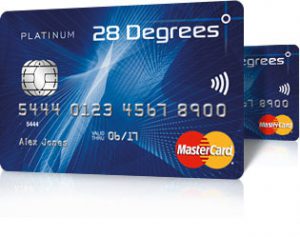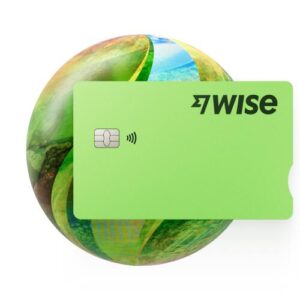4 Best Ways to Take Travel Money to Vietnam in 2025
Vietnam is one of the most popular tourist destinations for Australians, with a potent mix of fabulous food, buzzing cities and glorious nature to explore. There are also high numbers of Australian expats who’ve come to Vietnam to work in one of the big cities, or to retire in places like Da Nang and Vũng Tàu.
No matter whether you’re off to Vietnam for a short break or to live long term, you’ll need to figure out the best way to pay for things while you’re there. This guide covers 4 popular ways to take money to Vietnam, so you can pick the one that suits you best.
Best ways to take money to Vietnam
In this guide we’ll walk through 4 of the most practical and popular ways to take money to Vietnam, including our top picks for providers to look at, pros and cons. Here are the common ways to pay overseas that we’ll investigate:
Prepaid travel cards to use in Vietnam
Ideal for: secure spending and withdrawals, and a digital account you can use to hold and exchange a selection of currencies
Different prepaid travel money cards work in their own ways, which means you can pick the one that suits your spending style. With some prepaid travel money cards you’ll add money in AUD before switching to VND (or a selection of other supported currencies) online or in an app. With others you’ll simply need to add your money in dollars and the card will convert it for you when you spend or withdraw. In all cases you’ll get an app you can use to view your account balance and add money funds, which is convenient when away from home.
Picking a card which supports VND for holding and exchange has the advantage that you can lock in the exchange rate in advance, to set your travel budget. That can be especially handy if you spot a good AUD - VND rate and want to convert your money while you can.
Prepaid travel cards also have some security benefits as they’re not linked to your AUD bank account, which adds security when you’re travelling. If your card is stolen or misplaced, you can just freeze it in the provider’s app, without impacting your normal bank account or card.
Learn more about our picks for the 6 best prepaid cards - there’s more on our top choice, Wise, next.
Wise - our pick for prepaid travel card
With this card:
- Hold and exchange 40+ currencies in your linked Wise account
- No annual or monthly fees to pay, and no minimum balance requirement
- Currency exchange uses the mid-market rate with no markup
- Some free ATM withdrawals available every month
- Virtual and physical cards available
| Wise card pros | Wise card cons |
|---|---|
| ✅ Currency exchange uses the mid-market rate
✅ No foreign transaction fees apply ✅ Free to hold and spend 40+ currencies ✅ Receive payments to your Wise account in a selection of global currencies ✅ No minimum balance or ongoing fees |
❌ 10 AUD fee to get a card in the first place
❌ Free ATM withdrawals are limits to 2 per month, to the value of 350 AUD. Fees of 2% + 1.5 AUD after that ❌ Express delivery fees if you want to get your card as soon as possible |
Pros and cons of taking money to Vietnam with a prepaid travel card
Pros:
- Some cards let you hold VND, so you can convert funds in advance and lock in the exchange rate
- Not linked to your main everyday account, which increases security
- Cards are available with no minimum balance or ongoing fees to pay
- Currency exchange may have better rates than a bank will offer
- You’ll be able to re-use your card for your next trip - often dozens of currencies are supported
Cons:
- Not all cards support VND for advance exchange
- Exchange rates may include a markup on the mid-market rate
- ATM fees may apply, depending on the card you pick
- Some cards have inactivity fees which apply if you don’t use them regularly, or cash out fees if you close your account
Travel debit cards to use in Vietnam
Ideal for: spending and VND cash withdrawals, with no interest or penalty fees
Using a travel debit card offers a few specific benefits compared to using your normal bank debit card when you’re away. You can use a travel card as conveniently as any other debit card, but it can be safer as it isn't linked to your bank account. Many also come with extra benefits such as complimentary wifi, insurance or airport lounge access, plus low or no foreign transaction fees.
Travel debit cards are commonly issued by specialist providers, and will be linked to a digital multi-currency account you can manage from your phone. Once you have a card you’ll need to add money in AUD, and depending on the specific card you select, you could switch to VND immediately, or let the card do the conversion for you when you spend.
We’ll go into more detail about our top pick for a travel debit card - Revolut - next, and you can also read more about the best travel debit cards in Australia here.
Revolut - our pick for travel debit card for Vietnam
With this card:
- Hold and exchange 25+ currencies
- Choose the account plan that suits your needs and spending, including some with no monthly fees
- Some no- fee ATM withdrawals and currency exchange with the mid-market rate, based on the account tier you choose
- Extra perks like accounts for under 18s, plus cash back on card spending for top tier account holders
- Travel benefits offered for some account plans
| Revolut card pros | Revolut card cons |
|---|---|
| ✅ Hold and exchange 25+ currencies, spend currencies you hold for free
✅ Choose from different account tiers to suit different customer needs ✅ Get some free ATM withdrawals every month, depending on the plan you pick ✅ Get some currency exchange every month which uses the mid-market rate - limits vary by account plan ✅ No card order fee |
❌ Ongoing fees apply for some account tiers
❌ Out of hours fees push up currency exchange costs on the weekend ❌ ATM fees of 2% apply once you exhaust your free withdrawals |
Pros and cons of taking money to Vietnam with a travel debit card
Pros:
- Cards are often optimised for travel, with ways to cut the cost of spending overseas
- Different card options available to suit individual customer needs, including some with no ongoing fees to pay
- Make withdrawals from international ATMs to avoid having to carry a lot of cash
- No interest or penalty fees - just top up the amount you want to spend and you’re done
- Not connected to your main AUD account, adding a layer of security when you’re overseas
Cons:
- Not all cards allow you to hold and exchange VTM
- Unlike with a credit card you’ll need to fund your account upfront
- Some cards have monthly fees to pay to get full feature access
Taking cash in Vietnam
Ideal for: day to day spending in markets, small stores and taxis, also useful for tipping
In major cities and tourist areas you’ll find that stores, restaurants and hotels can usually take a card payment. However, many vendors will only accept cash in smaller places - and as visiting markets and trying street food is one of the great joys of a trip to Vietnam, you’ll want to carry some dong so you don’t miss out.
If you’re planning ahead of time you can buy VND online from a provider like Travelex before you leave, and collect it at a branch or have it delivered to home. Alternatively you can carry AUD to exchange on arrival, or make ATM withdrawals from time to time. Using ATMs is usually a convenient option as it’s more secure than carrying a lot of cash - and in cities and tourist resorts you’ll find plenty of ATMs to choose from.
Generally it’s a smart idea to have some cash as well as one or more cards to cover all your spending when you’re in Vietnam. That way you always have a back up plan if one payment method isn’t accepted.
| Cash pros | Cash cons |
|---|---|
| ✅ Major providers like Travelex sell VND you can get delivered to your home
✅ In many situations, cash will be the only accepted payment method ✅ Convert in advance so you know exactly what you have to spend ✅ Use travel debit cards to make cash withdrawals when you can, which often offer better rates than buying cash |
❌ Carrying a lot of cash isn't safe - tourists are often targeted by petty thieves
❌ You’ll have to invest time during your break or in advance, shopping round to get a good deal ❌ Exchange rates vary widely and usually include a markup - an extra fee |
Do I need cash in Vietnam?
Yes. Carrying some cash in VND is a good idea for anything you want to pick up from a market or street stall. Cash is also used for tipping and if you take a taxi, so it’s pretty much unavoidable.
How to buy Vietnamese dong on arrival in Vietnam
Australian dollars in cash can be exchanged to VND on arrival in Vietnam. You’ll find plenty of currency exchange stores in the larger cities, but bear in mind that you’ll struggle in more remote areas. In this case you might end up needing to exchange your money with your hotel, which usually means paying a high fee.
How to buy Vietnamese dong in Australia?
If you’d prefer to be organised in advance you can also choose to exchange AUD to Vietnamese dong in cash in Australia before you travel. Options like Travelex often let you order VND online and collect your cash later in a branch, or have it delivered to your home. Fees and exchange rate markups may apply.
Best place to get Vietnamese dong from
There’s no single best place to get your travel cash. For many travellers, carrying some VND and AUD in cash, and making some cash withdrawals as and when needed offers both security and convenience.
Travel credit cards to use in Vietnam
Ideal for: secure spending and the opportunity to earn extra travel perks, rewards or miles.
If you prefer to spend using a credit card, getting a travel credit card can be a good plan. Not only does this offer the option of getting reward points, cashback or miles when you spend, it could work out to be fairly good value if you pick a card with low or no foreign transaction fees. However, you’ll have to weigh up the benefits against the costs, which can include annual fees, interest and cash advance charges.
In particular, making an ATM withdrawal with a credit card can be very pricey because you’ll usually be charged a cash advance fee and interest which accrues instantly. It’s worth considering getting a travel debit card to use in ATMs, which can mean no fees and good exchange rates, and keeping your credit card for spending directly with merchants.
Learn about the best travel credit cards in Australia here, and read on for more on our top pick.
28 Degrees - our pick for travel credit card
With this card:
- Order online and start spending with your virtual card instantly if approved
- No annual or monthly fees
- No foreign transaction or currency conversion fees
- Make ATM withdrawals overseas - fees apply for this service
- Unlock perks like discounts on travel bookings and internet roaming packages

| 28 Degrees pros | 28 Degrees cons |
|---|---|
| ✅ No annual or monthly fees
✅ No foreign transaction fees - your payment is converted to AUD using the Mastercard exchange rate ✅ Repay your bill in full monthly to avoid interest or penalty fees ✅ Travel perks and partner discounts available |
❌ Cash advance fee of 3% or 4 AUD (whichever is greater), plus interest, when making an ATM withdrawal
❌ Interest charges apply if you don’t repay your bill in full monthly ❌ Subject to eligibility and credit checks |
Pros and cons of travel credit cards to Vietnam
Pros:
- Convenient and safe way to pay, accepted in major hotels and retail chains
- Earn rewards and discounts, or get travel perks - depending on the card you pick
- Some cards have low or no foreign transaction fees
- Credit cards are useful as a payment guarantee in some situations
Cons:
- Cards won’t be accepted by street vendors and at popular tourist places like markets
- Interest and fees usually apply if you don’t pay back your bill immediately
- Cash advance fees and interest mean that using your card at an ATM is expensive
- Eligibility rules and credit checks apply
Travel requirements from Australia to Vietnam
You’ll need to apply for an e-visa to go to Vietnam. Once issued, your visa will allow a stay of up to 90 days, for business or leisure purposes. Apply in good time so you have all your documents lined up before you travel.
Entry requirements can change rapidly, so checking before you travel is always advised. Check the government’s Smart Traveller website to learn more.
Does Vietnam accept Australian dollars?
No. You won’t be able to spend AUD anywhere in Vietnam. If you’re carrying dollars with you you'll need to exchange them for Vietnamese dong when you arrive.
Best currency to take to Vietnam
You’ll only be able to spend in Vietnamese dong in Vietnam, so you can choose to either carry AUD in cash with you and convert on arrival, or to order your travel cash in Vietnamese dong before you leave. Bear in mind that exchange offices will be hard to find in more remote areas.
How much money do I need per day in Vietnam?
Vietnam is a big place, with everything from high end luxury hotels to rural homestays. That means you can find the accommodation that suits your budget, no matter what you’re planning on spending.
You’ll also find that day to day life in Vietnam is often pretty cheap. To give a flavour, a 3 course lunch for 2 will set you back just over 30 AUD on average, a cheap lunch for one will be around 3 dollars - and a domestic beer about 1.60 dollars. Do some detailed research to see how much things are likely to cost based on your plans and where you’re headed, so you can set your budget. Get more detailed cost information by city, from Numbeo.com.
How much does it cost to fly from Australia to Vietnam?
Flight costs vary widely depending on where in Australia you’ll leave from and where you’ll visit in Vietnam. At the time of writing (September 2023), the very cheapest flight deals are under 300 AUD return. However, these flights will require a change which can make the overall travel time very long. Non-stop flights are available from some cities in Australia for a slightly higher price - at the time of writing you’d pay around 400 AUD for a flight from Melbourne to Ho Chi Minh City, for example.
Conclusion
Generally, whether you’re heading to Vietnam or anywhere else in the world, having a variety of ways to pay is definitely the smartest move. That’s certainly the case in Vietnam, as cards won’t always be accepted, so you’ll need a mix of cards and cash to get by conveniently.
Carrying lots of cash isn’t safe, so for most travellers, using a card to make ATM withdrawals in VND as and when you need to makes sense. You could also find this approach saves you money if you get a travel card - such as a prepaid travel card from Wise or a travel debit card from Revolut. Not only will you get a good exchange rate, many travel cards have some free ATM withdrawals overseas, for a great combination of cost and convenience.
Use this guide to decide which option to take money to Vietnam will work best for you, based on your own preferences and needs.
FAQ - Best ways to take money to Vietnam
Should I exchange money before I travel to Vietnam?
You’ll need to have some cash in Vietnam, so you can exchange in advance or make an ATM withdrawal on arrival at the airport. Using an ATM can also be cheaper than advance exchange, particularly if you have a travel card from a provider like Wise or Revolut.
Can I withdraw Vietnamese dong from a local ATM?
You can’t withdraw Vietnamese dong at an ATM in Australia, but you can use a travel card to make an ATM withdrawal on arrival in Vietnam. This is often one of the most convenient ways to arrange your travel cash for Vietnam.
Are prepaid travel cards a good way to take money to Vietnam?
Travel prepaid cards from services like Wise are a safe way to spend when abroad. With Wise you’ll also get mid-market exchange rates and low, transparent fees which can bring down the costs of your trip.
Can I use cash in Vietnam?
Yes. Cash is unavoidable as it’s the only payment method accepted by many smaller merchants. Carry some cash at all times, and make ATM withdrawals as and when you need to so you never run short.

